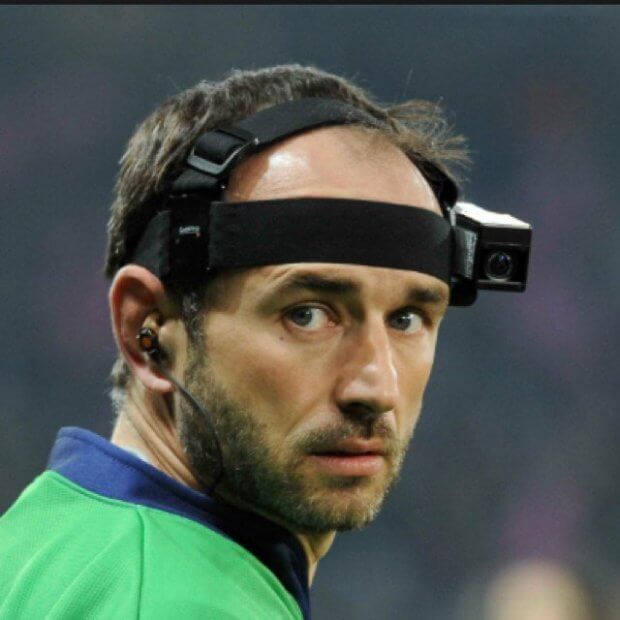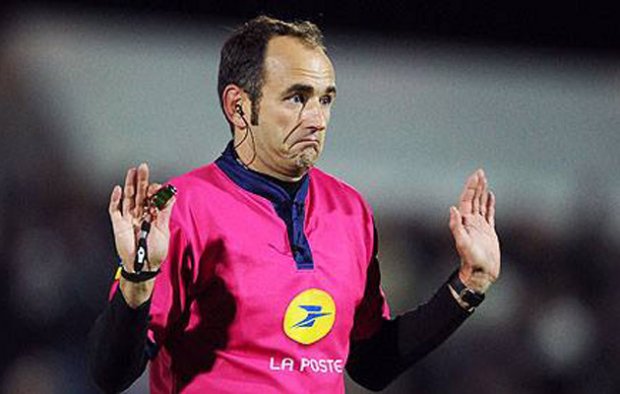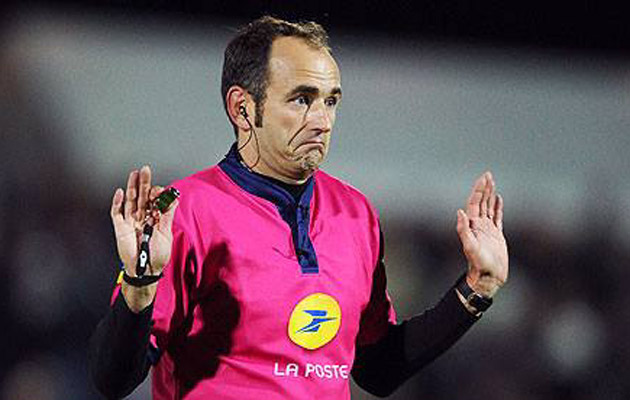It was the biggest call in the biggest match of the biggest series. And Romain Poite got it bang on.
Despite the 235 minutes of amazing rugby that led to it, Romain Poite’s call on a botched Lions kick-off reception will be the one that attracts most of the post-game attention. I couldn’t sit back and allow a series of partisan Kiwi or British numbskulls dominate the discussion. Here is my opinion, which let’s face it is the only one you ever really need.
The Incident
You’ve seen it a few times by now, but have a look at it again. It’s one of the most interesting four minute stretches I have ever seen on a rugby field:
The Process
Let’s walk through this in detail, because it’s pivotal in working out how Poite came to the decision he did.
Firstly it’s important to note that Poite had been having a good game up until this point. There were a few controversial calls, but you can never escape that as a referee. In my view he hadn’t made any clangers, and the game had flowed nicely with both teams evenly matched across the field.
 And then we get to the 78th minute. Owen Farrell has just levelled the scores, and Beauden Barrett lofts the kick-off into centrefield. Liam Williams fumbles it forward, and the ball falls into the breadbasket of Lions substitute hooker Ken Owens.
And then we get to the 78th minute. Owen Farrell has just levelled the scores, and Beauden Barrett lofts the kick-off into centrefield. Liam Williams fumbles it forward, and the ball falls into the breadbasket of Lions substitute hooker Ken Owens.
Poite instantly blows a penalty to New Zealand. Chaos ensues. Instantly, the gravity of this decision hits Poite – there is a 98% chance this hands the game (and the series) to the All Blacks. It’s eerily reminiscent of what happened in the Scotland vs Wallabies Quarter Final in 2015, and unquestionably the single most important refereeing decision of the decade. The audio isn’t great at this point, but it appears Poite responds to a complaint from Sam Warburton that Williams was unfairly challenged in the air by Kieran Read.
This is very convenient for Romain. He gets a chance to take a deep breath and look at the decision he has just made. He consults George Ayoub, and once the aerial challenge complaint is dealt with (Read clearly has eyes for the ball and challenges fairly) he posits that Owens has played the ball in an offside position. Ayoub agrees, and it’s settled – an All Black penalty. But then it all changes…
Romain has to walk about 20m back to the captains. You can see his brain turning over, realising the gravity of the decision he has to make. He has seen Craig Joubert become a pariah by making a very similar decision. Unlike Joubert or Wayne Barnes, Romain is not a referee who craves being the centre of attention in the big moments. He knows he is in a totally untenable position, and is broadly screwed no matter what decision he makes. An All Black penalty will echo through rugby history, or at least the next 12 years…
… So he doesn’t blow it. In that 20m he changes his mind and opts to call a scrum with an All Black feed.
The Decision
Now we come to the hard part. Did he get it right? For this we need to go to the law books. Here is the definition of ‘offside’ in this context (11.1b):
A player who is offside must not take part in the game. This means the player must not play the ball or obstruct an opponent. Sanction = Penalty.
Here is the definition of ‘accidental offside’ (11.6a):
When an offside player cannot avoid being touched by the ball or by a team-mate carrying it, the player is accidentally offside. Sanction = Scrum
The key consideration here is intent. Did Ken Owens ‘play the ball’? Or was his contact with it unavoidable?
I don’t think there is a black-and-white answer if I’m honest. It’s clear he does hold the ball for a fraction of a second. But I also think that is almost impossible not to do in that circumstance. His play wasn’t cynical, or designed to give the Lions an advantage. He clearly had no idea what was going on.
You could make a solid case for both courses of action, and it’s why this is such an interesting discussion.
The Moment
Ian Smith says at one point ‘I wonder if he’d have ruled that way if it was the first minute and not the last’. It’s a fair observation, and the answer is ‘probably not’. But the notion that this decision needed to be treated like all others is completely misguided in my opinion. And it’s why I think Romain got it right.
The game rested on that moment. Though in some ways we want purity in all officiating decisions, let’s be real here – it was a huge call and I think it’s unfair to suggest it should be treated like it was the first minute, or a Super game. A whole series depended on the call being correct, or at least not totally wrong.
In some ways, though, Poite made a complete hash of it. His communication to both captains is bewildering – ‘we have a deal’ he says, and I have no idea what he means. Neither does Kieran Read, who is understandably confused. He backflips on his conversation with Ayoub, and while his explanation to Read about why (‘the ball hit his shoulder’) was OK, it didn’t make any sense given the three minutes that led to it.
For the way the process was managed, Romain deserves some cricitism. But for the actual decision? I think it’s unwarranted (though I do think if the score was 12-10 instead of 12-12 the reaction may have been very, very different).
This has been an all-time series. To have it come down to a refereeing decision, no matter how obvious, would be a godawful shame. The core philosophy every referee should follow is to let the players decide the course of the game wherever possible.
Romain was faced with a grey area of law, where he had two options – decide the match himself, or leave it to the players. Knowing he would alienate millions of fans with either decision, he chose option b. And although the process was completely bungled, in my view his end decision was the correct one.


